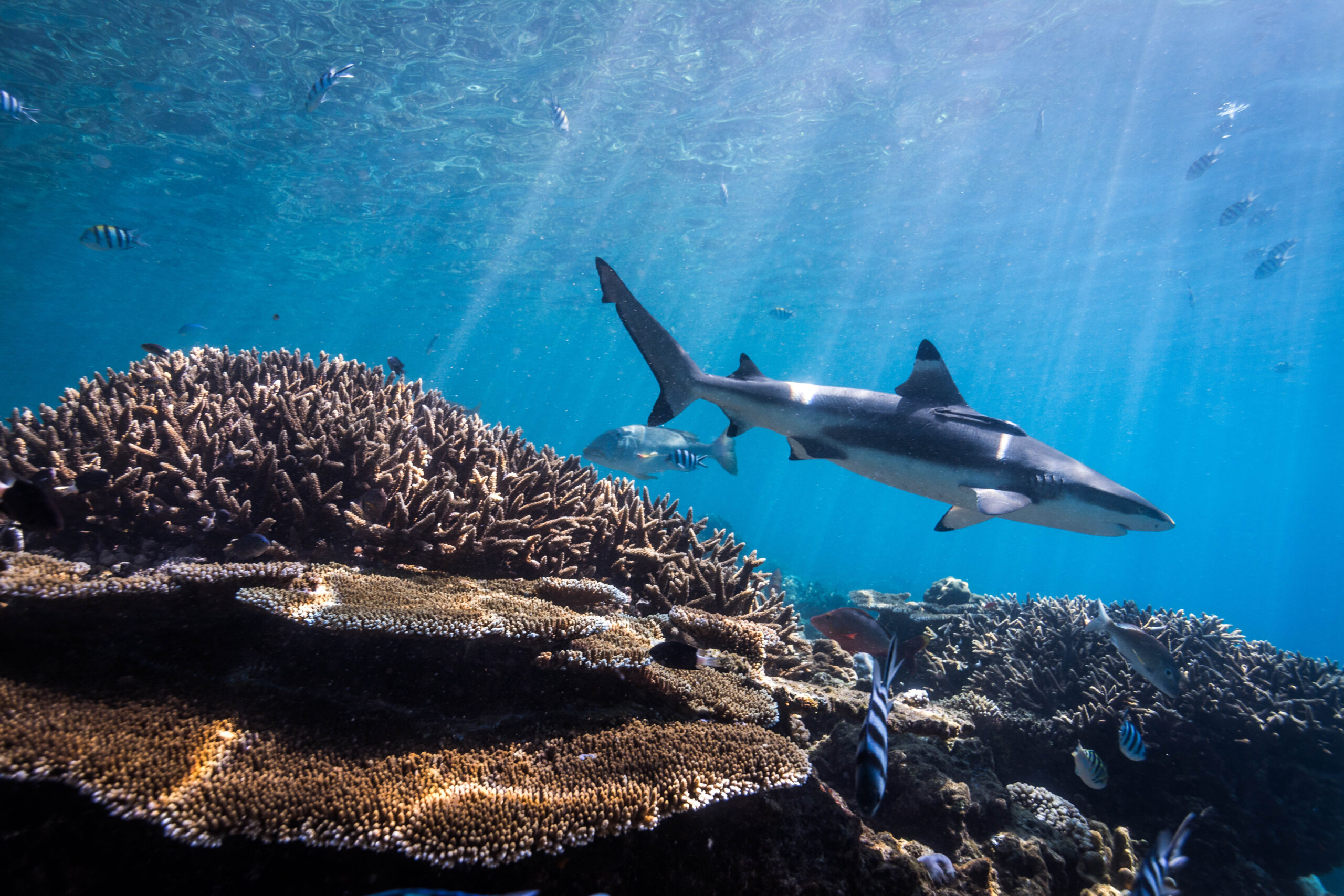This paper uses modeling on Caribbean reefs to emphasize the need for both local action and a low-carbon economy to prevent further degradation of coral reefs. The authors find that no-take marine reserves (leading to protection of herbivorous fish) must be combined with low carbon emissions (keeping the global mean temperature below 2 degrees Celsius) to prevent erosion of coral skeletons. Additionally, they found that coral reefs must be initially relatively healthy (they use a measure of 20% coral cover) to start, even with lowered carbon emissions and no-take reserves. This paper provides a clear message that global action to reduce carbon emissions must go hand-in-hand with local efforts, such as no-take reserves and watershed protection.
Author: Kennedy, E.V., C.T. Perry, P.R. Halloran, R. Iglesias-Prieto, C.H.L. Schonberg, M. Wisshak, A.U. Form, J.P. Carricart-Ganivet, M. Fine, C.M. Eakin, and P.J. Mumby
Year: 2013
View Full Article
Current Biology 23(10): 912–918


